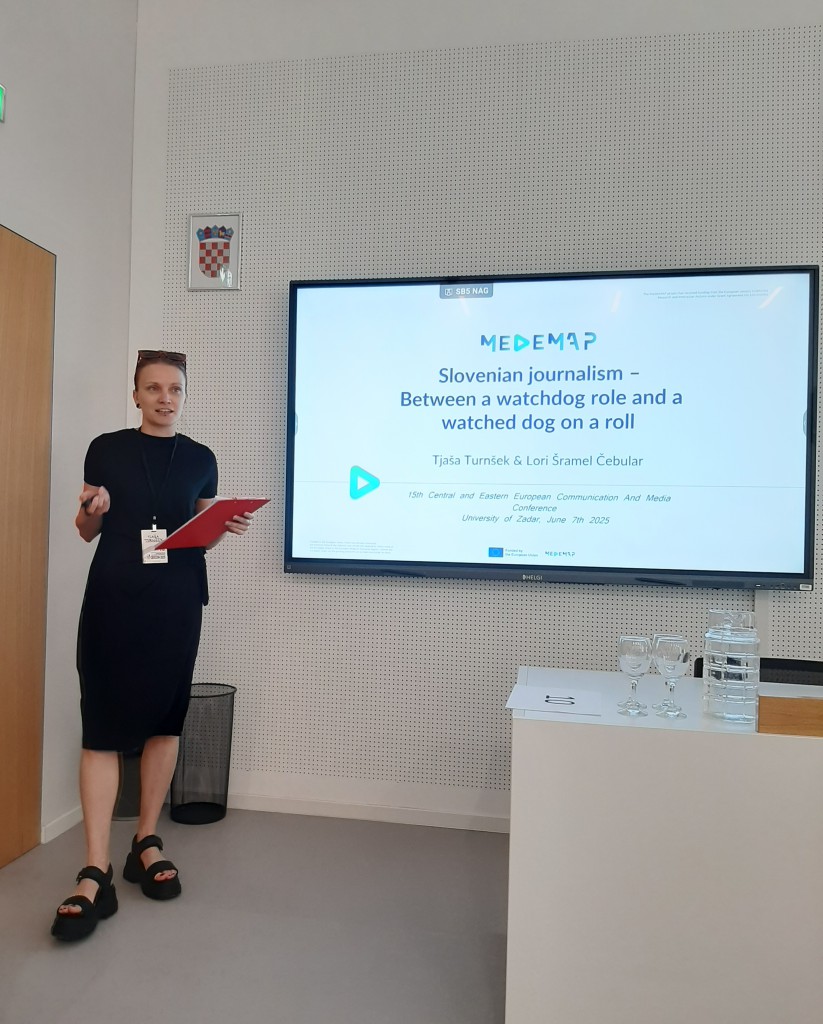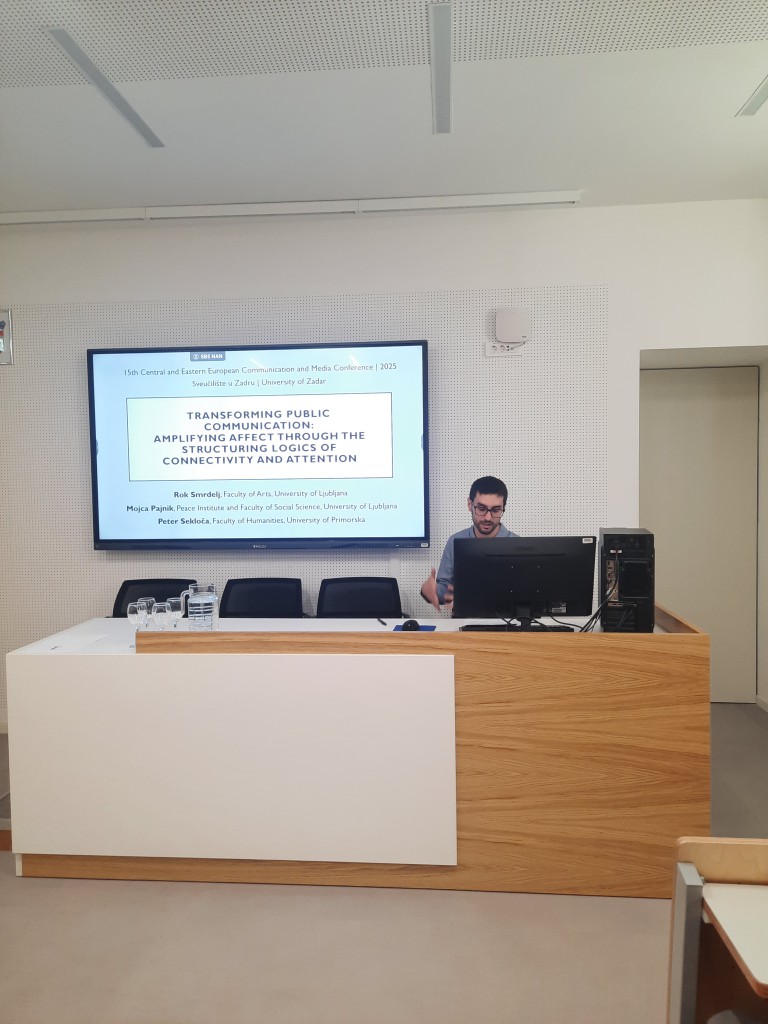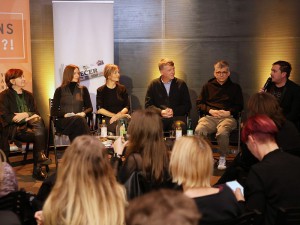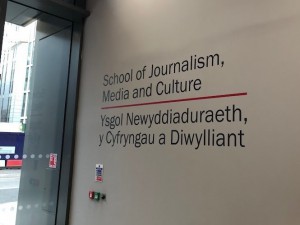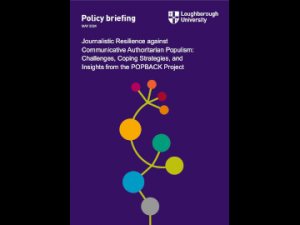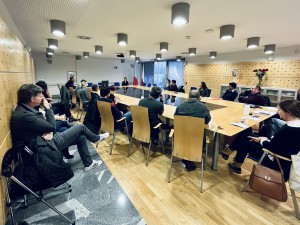Journalism, audiences, and platform power in the age of transformation
12. 6. 2025 | Media
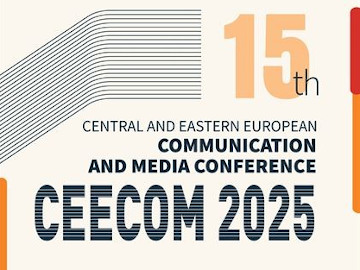
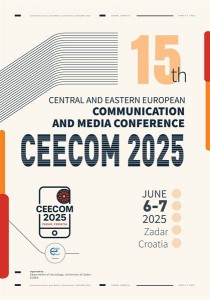 Tjaša Turnšek and Rok Smrdelj participated in the 15th Central and Eastern European Communication Conference (CEECOM 2025), held on June 6 and 7, 2025, at the University of Zadar under the title Journalism, Audiences, and Platform Power in the Age of Transformation. At the conference, they presented papers within the frameworks of the MeDeMAP and AFEMED projects, which are being carried out at the Peace Institute.
Tjaša Turnšek and Rok Smrdelj participated in the 15th Central and Eastern European Communication Conference (CEECOM 2025), held on June 6 and 7, 2025, at the University of Zadar under the title Journalism, Audiences, and Platform Power in the Age of Transformation. At the conference, they presented papers within the frameworks of the MeDeMAP and AFEMED projects, which are being carried out at the Peace Institute.
Tjaša Turnšek presented a paper titled Slovenian Journalism – Between a Watchdog Role and a Watched Dog on a Roll (co-authored with Lori Šramel Čebular).
The paper examines perceptions of the role of journalism in Slovenia from two interrelated perspectives: that of journalists, who operate under increasing political and economic pressures, and that of citizens, who interpret and respond to journalistic work in complex and multifaceted ways.
The analysis is based on ongoing research within the MeDeMAP project, which investigates the democratic functions of the media from both the production and audience perspectives. Drawing on interviews with journalists, focus groups with citizens, and citizens’ parliaments, the paper highlights the gap between normative expectations of journalism and actual practices within the media landscape. The findings point to challenges such as media ownership, the decline of investigative journalism, and the erosion of public trust. At the same time, both journalists and citizens underscore the essential democratic role of journalism, particularly its “watchdog” function.
Rok Smrdelj presented a paper titled Transforming Public Communication: Amplifying Affect Through the Structuring Logics of Connectivity and Attention (co-authored with Mojca Pajnik and Peter Sekloča).
The paper focuses on the question of why affect has become the central organizational logic of the contemporary media sphere. The authors argue that affect is being amplified to the forefront of contemporary communication by the structural logics of “connectivity” and “attention,” which have been shaped by processes of digitalization and platformization, and further reinforced within the context of neoliberal, post-Fordist capitalism. These are defined as structural logics, drawing on Giddens’ theory of structuration and Altheide and Snow’s concept of media logic. Within this framework, they are interpreted as sets of institutionalized patterns of action that determine which communication practices, affective responses, and expressions are recognized as legitimate and desirable. The paper aims to offer a new conceptual framework for understanding affective dynamics in the contemporary media sphere, increasingly shaped by the logics of connectivity and the struggle for attention.
For more information about the CEECOM conference, please visit: https://conference.unizd.hr/ceecom.

